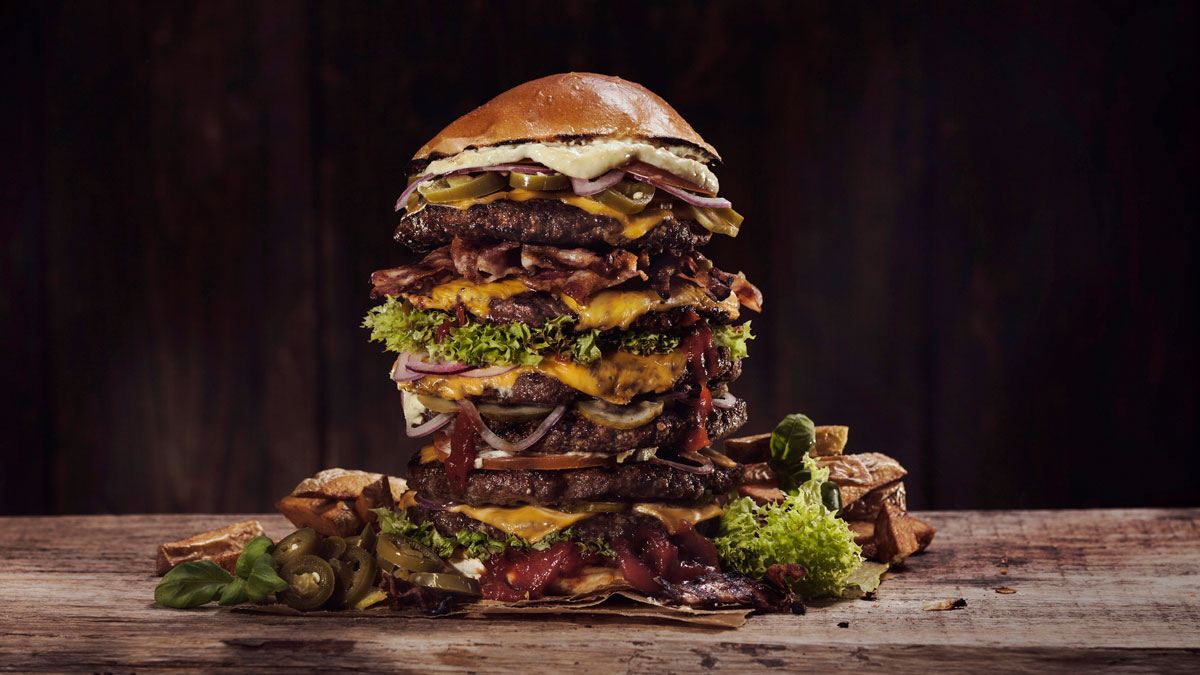CRITERION: Can these fast food stocks supersize profits as competition mounts?

Picture: Getty Images
Known in polite circles as quick service restaurants, the fast food sector is proving resilient in times of consumer stress.
But the latest sales results from the listed exemplars show the franchises need to tread warily when it comes to supersizing profits at the expense of customers.
This week, Colonel Sanders’ local foot soldier Collins Foods (ASX:CKF) revealed local same-store sales growth of 2.9 per cent in the first six weeks of its second half (from Oct 16).
Given first half sales grew 6.6 per cent there’s been some softening – probably because of interest rates – but nothing to frighten the henhouse too much.
Domino’s Pizza Enterprises (ASX:DMP) in early November reported similar local like-for-like growth of 2.7 per cent.
Collins owns 270 of the brand’s 750 chicken joints (mainly in Queensland and WA).
Globally, KFC is owned by the $54 billion New York listed Yum! Brands (formerly Pepsico) which also owns Pizza Hut and Taco Bell.
With 3800 stores, Domino’s Pizza Enterprises accounts for half of the Australian market and has the rights to Belgium, France, the Netherlands, Japan, Germany, Luxembourg, Taiwan, Malaysia, Singapore and Cambodia.
Collins Foods runs Taco Bell here and has KFC rights in Germany and the Netherlands.
At Domino’s August full-year results, CEO Don Meij admitted the chain had scared customers away by increasing prices to compensate for sharply higher input costs.
The company hastily removed a new delivery charge and made changes to its menu in favour of the cheaper lines.
By the time of the early November Meij had regained his mojo, pointing to “materially higher” December-half earnings after a poor 2022-23 year. He also notes an uptake in higher-quality pizzas as an affordable treat when household budgets are stressed.
Collins Foods is determined not to emulate Domino’s pricing misstep, adopting a “conservative approach to pricing centred on maintaining affordability.”
The company seemed to get the balance right, with first-half revenue climbing 14 per cent (to $696 million) and underlying profit rosing 29 per cent (to $31.2m).
The fast food sector’s reliability is reflected in the dominant position of private equity players – who are always quick to sniff out a sure thing – in the byzantine ownership structures.
PAG Asia Capital owns Oporto and Craveable Brands, which in turn owns Red Rooster.
The private equity and super fund backed Guzman y Gomez recently dusted off plans to list the fast-growing chain, but like a jalafuego jalapeno the asking price was too spicy for investors.
An alternative is the lesser-known ASX and NZ-listed Restaurant Brands NZ (ASX:RBD), which has the Kiwi dibs on KFC, Pizza Hut and Taco Bell and owns 75 KFC outlets in NSW (as well as 75 in California).
Majority owned by private equity, Restaurant Brands reported September quarter same-store Australian sales growth of 13 per cent, with mall and CBD trade recovering to near pre-Covid levels.
All in all, the big chains are shrugging off new competition from hundreds of gourmet burger shops or ethnic-themed offerings such as Roll’d (Vietnamese) or Korean Fried Chicken (yep – the other KFC).
Domino’s faces a potential threat as Pizza Hut seeks to reclaim its previous market leading position under new ownership (Flynn Restaurant Group of the US this year acquired the local rights from private equiteer Allegro).
Collins Foods shares have climbed more than fourfold since listing in 2011 and has a reliable dividend-paying record.
Having listed at $2.50 per share in 2005 and now trading at above $50, Domino’s has made plenty of dough for its shareholders.
Domino’s stock trades perennially on a fancy multiple, but hiccups aside the company’s earnings growth ends up justifying the valuation.
This story does not constitute financial product advice. You should consider obtaining independent advice before making any financial decisions.
The views, information, or opinions expressed in the interviews in this article are solely those of the interviewees and do not represent the views of Stockhead. Stockhead does not provide, endorse or otherwise assume responsibility for any financial product advice contained in this article.
Related Topics
UNLOCK INSIGHTS
Discover the untold stories of emerging ASX stocks.
Daily news and expert analysis, it's free to subscribe.
By proceeding, you confirm you understand that we handle personal information in accordance with our Privacy Policy.








